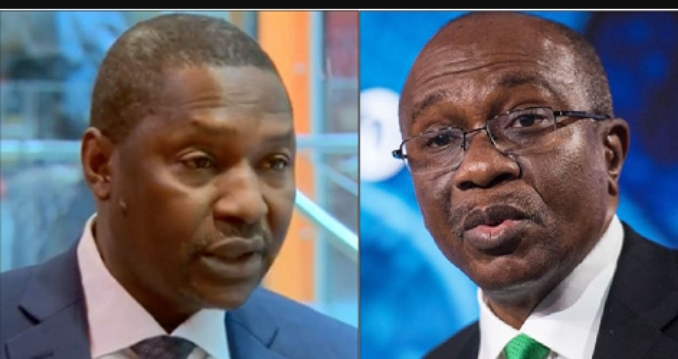 ….Anger in Ekiti, Osun, others over rejection of old notes
….Anger in Ekiti, Osun, others over rejection of old notes
.,….Radio presenter slumps, dies while trekking to work
THE cash scarcity caused by the naira redesign claimed another life yesterday in Ibadan as pressure mounts on the Federal Government and the Central Bank (CBN) to ease the suffering of the people.
The Bayelsa State Government is suing for calm in the state following Friday’s protest by residents of Akenfa community in Yenagoa Local Government Area to call government’s attention to the tough life they have been facing over the naira scarcity.
They said they had had enough of the rejection of the old naira notes by traders one week after the Supreme Court extended their validity to December 31, 2023.
The placard carrying protesters said life had come to a standstill as they could neither sell nor buy while hunger continued to bite them and their children.
Ekiti State Governor Biodun Oyebanji yesterday joined the list of governors threatening to arrest and prosecute traders and service providers who reject the old N500 and N1000 denominations.
But the threats are having little or no effect as traders continue to reject the old notes.
They insist that President Muhammadu Buhari and the CBN must speak out on the judgment of the apex court to guide Nigerians appropriately on the old naira notes.
Baba Bintin L’aye, a presenter with Ibadan-based private radio station, Fresh FM, slumped to death yesterday while taking a walk to the radio station to present his programme.
He had reportedly left home armed with his ATM card in the hope of getting some cash from a POS outlet to pay for his transport fare.
He apparently failed to get the cash hence he resorted to trekking from his Amuloko residence to Challenge area of Ibadan, the location of the radio station, only to collapse on the way.
Baba Bintin L’aye is the latest known casualty of the naira scarcity which has made life unbearable for millions of Nigerians.
Before him was a Kaduna pregnant woman who died at the point of delivery because her husband was unable to pay the required hospital deposit on account of the cash squeeze.
An employee of the Lagos State University (LASU), Johnson Adesola, had also slumped to death last month while on a queue to withdraw cash at a bank on the institution’s main campus at Ojo, Lagos.
At least three other persons were killed also last month during violent protests in Edo State over the naira scarcity.
The federal government and the CBN have continued to keep mum over the Supreme Court judgment, prompting the Kaduna, Kogi, Zamfara, Ondo, Ekiti, Katsina, Ogun, Cross River, Lagos and Sokoto state governments to consider slamming contempt charges against the Attorney Genral of the Federation and Justice Minister Abubakar Malami (SAN) and the apex bank for non-implementation of the court order.
The states on Friday served the Attorney-General of the Federation the enrolled order of the Supreme Court on the extension of the validity of the old N200, N500 and N1,000 to December 31, 2023.
By the service, the order became automatically applicable to all agencies of the Federal Government, including the CBN.
Malami and CBN Governor Godwin Emefiele risk being committed for contempt of the court if by Monday they fail to comply with the order of the apex court.
The 10 states have activated the machinery to file contempt charges against Malami and Emefiele if they defy the order of the Supreme Court.
The delay in releasing the Certified True Copy (CTC) seems to have encouraged the banks to adopt different attitudes to the judgment of the apex court.
Some of the banks have been giving the old notes to customers but insist that customers go through the strenuous process stipulated by the CBN for the old notes to be banked.
Our correspondence gathered that the enrolled order, dated March 3rd, 2023, was served on AGF Malami yesterday.
A counsel in the matter said: “We have finally served the Attorney-General of the Federation the enrolled order of the Supreme Court.
“What we did on Friday was to fulfill all righteousness by serving the enrolled order on the AGF.
“The Federal Government has been evasive by claiming that it had not received the Certified True Copy (CTC) of the judgment, which we have obtained and made available to it.
“The burden is on Malami to act as the Chief Law Officer of the Federation to comply with the order.
“There is no hiding place for the government; there is no excuse again. While we are waiting for the government’s decision, the law provides us backing for Plan B.”
The enrolled order of the Supreme Court, which was sighted by The Nation, reads as follows: “It is ordered that this suit has merit. That the demonetization directive/policy by the President of the Federation to wit: withdrawal of the old 200, 500, and 1000 naira notes is not consistent with the provision of the Constitution of the Federal Republic of Nigeria 1999(as amended) which makes provision for the Executive power of the President of the Federation and the extant laws on the subject matter.
“That the three months’ notice given for the implementation and completion of the said demonetization policy by which time the old N1,000, N500 and N200 naira notes shall cease to be legal tender does not satisfy the condition set out in Section 20(3) of the CBN Act 2007.
“That the President cannot unilaterally give a directive to embark on the demonetization policy pursuant to Section 20(3) of the CBN Act 2007 in view of Nigeria’s Fiscal Federalism, the economic interest of the Constituents of the Federation and without consultation with, and advice from the plaintiff, individually, and in their capacity as members of the National Council of States and National Economic Council and that the directive cannot be given without consultation with, and advice from the cabinet, the National Security Council and other stakeholders.
“That in issuing the directive for demonetization policy pursuant to Section 20(3) of the CBN Act, 2007 on behalf of the Federation of Nigeria, the President is under an obligation to ensure that adequate structures are put in place for the plaintiffs and Nigerian citizens prior to the implementation of the said directive.
“That the demonetization directive/policy by the President of the Federation to wit: withdrawal of the old N200, N500 and N1, 000 notes unlawfully impede the exercise of the Executive Powers of the plaintiffs’ states and other obligations to facilitate and protect the welfare of the citizens of the said states pursuant to Section 5(2) and other provisions of the Constitution of the Federal Republic of Nigeria 1999(as amended) as well as other extant laws.
“That the directive given by the President pursuant to Section 20(3) of the CBN Act 2007 limiting the amount that can be withdrawn and the charges therein without an enabling law is unconstitutional and not binding on the plaintiffs.
“That the directive of the President of the President of the Federation exercised is illegal to the extent that it restricts, without an enabling law, the rights of the plaintiffs to freely use their money in various bank accounts.
“That the old version of N200, N500 and N1,000 notes shall continue to be legal tender alongside with the new or redesigned version until 31st December, 2023.
“That the reception of old N200, N500 and N1,000 notes and the swapping of same with new Naira notes shall continue till 31st December, 2023.
“That all the consolidated suits listed in pp. 12-13 of the judgment shall abide this judgment.”
Bayelsa govt calls for calm
Following the Friday protest in Yenagoa and the continuing anger of the people over FG’s silence on the Supreme Court’s judgment, the Bayelsa State Government yesterday pleaded with residents of the state to be calm and shun acts that could jeopardise the peace of the state.
Information, Orientation and Strategy Commissioner Ayibaina Duba said in a statement that while the state government was not in any way against the naira redesign policy of the CBN or the federal government, it was “not comfortable with the method of its implementation that has resulted in further hardship on people of the state and, indeed, the country.”
It urged business operators in the state, particularly banks, traders and keke (tricycle) to “take into consideration the Supreme Court ruling in order to reduce the pains of people of the state.”
It also asked the CBN to “take immediate steps to ease the burden of doing business in the state by making implementation of the policy less cumbersome.”
Ekiti govt to arrest, prosecute traders rejecting old naira notes, says Oyebanji
Ekiti State Governor Biodun Oyebanji said government would arrest and prosecute traders and service providers who reject the old N500 and N1000 denominations.
His Special Adviser on Media, Mr Yinka Oyebode, in a statement in Ado Ekiti particularly appealed to traders and business owners in the state to stop creating hardship for residents.
The governor explained that the old N500 and N1000 denominations remained legal tender till the end of this year by virtue of the ruling of the Supreme Court.
Oyebanji said that his office had been inundated with the cries of the people due to the hardship being faced as a result of the low circulation of the redesigned naira notes.
Oyebanji said that the refusal of many business owners in the state to accept the old naira notes as means of transaction was unlawful.
He said: “This is an appeal to all residents of Ekiti to abide by the ruling of the Supreme Court, which has provided a reprieve for the people by extending the validity date of the old naira notes till December 31.
“As honourable people, what is expected of us is to abide by the ruling of the apex court and continue to accept the old naira notes as means of transactions and not to inflict further hardship on one another by rejecting it.
“Government will not hesitate to arrest and prosecute business owners found rejecting the old naira notes,” the statement quoted Oyebanji as saying.
He pledged that his administration would continue to explore avenues to make life more meaningful for the people, as it continues to build a more prosperous state.
The governor, therefore, appealed to the market women and men, artisans, transporters, filling station attendants, supermarket owners and school proprietors as well as service providers to remain law abiding and accept the old naira notes.
He also urged the commercial banks and Central Bank of Nigeria (CBN) to make the old and new currencies available in their branches and at their Automated Teller Machines (ATM) points to ease the stress residents go through to get money for their daily and commercial needs.
Osun residents decry inability to spend old N500, N1000 notes
Residents of Osogbo in Osun have decried their inability to spend the old N500 and N1,000 denominations in spite of the Supreme Court’s pronouncement that they remain legal tender until December 31.
Some of them told the News Agency of Nigeria (NAN) yesterday that were happy with the Supreme Court’s judgment, but were disappointed when traders refused to accept the money.
Mr Adejare Agunloye, a civil servant, said the N10,000 old notes he got from the ATM had become useless as traders refused to accept them from him .
“The situation is really messed up,” he said.
“Imagine the situation where the Supreme Court would give a judgment and people still have to wait for the President to give such court order power of authenticity.
“I have been cash strapped since the new currency issue started and imagine my joy (like many others) when the judgment that banks should circulate the old N500 and N1,000 notes was given.
“Now see, after rushing to withdraw the old money from the bank, there is no where to spend it as traders continue to reject it because the President and CBN governor have not said it should be spent.
“At the moment, I have money I cannot spend, and the worst part is, banks are not collecting the old notes from customers who want to deposit them. Instead, they are asking us to take the money directly to the CBN office for deposit.
“I don’t understand why things in Nigeria are always made difficult by the authorities.”
Another resident, Mrs Ayoade Usman, said she withdrew N5,000 old notes from the ATM with the intention of buying food items from the market.
Usman said she almost got into a fight with some traders when they refused to collect the money from her, saying they don’t accept the old notes.
“I was angry after I wanted to buy pepper and meat and other food items, and these people said they are not collecting the old notes.
“This is the money that the Supreme Court said remains a legal tender till December and this is the same money these traders are refusing to collect.
“So, what is the essence of collecting the old Naira notes from the banks if business operators and traders would not collect them?
“I hope the CBN governor or Mr President would speak or issue an official statement to address this matter, because the banks are still paying out the old notes to customers while business owners are rejecting them,” she said.
Mr Ajayi Ogunsola, a resident and a commercial transport operator, said he was collecting the old notes from passengers, but stopped when he discovered filling stations and traders were not collecting them from him.
“I was collecting the old N500 and N1,000 when the court said we should continue to spend them. But to my surprise, when I wanted to buy fuel, the fuel attendant said she was not collecting the old notes.
“I thought she was joking and told her the Supreme Court has directed that the old notes should remain a legal tender till December 31, but she insisted that the management had directed her and her colleagues not to collect the old notes.
“At this point, I did not know what to do with the old notes with me because I heard banks are also not collecting them, and people are saying I have to take it to the CBN office.” he said.
May God’s judgement be on you, Fani-Kayode curses CBN managers
Lamenting the naira scarcity situation across the country despite recent orders by the Supreme Court, former Minister of Aviation, Femi Fani-Kayode took to his Twitter page on Saturday to rain curses on the people at the helm in Central Bank of Nigeria (CBN) for causing the people untold hardship.
The All Progressives Congress (APC) chieftain lamented that some people at the CBN believe they are greater than the court but should remember they are not greater than God.
“May God’s judgement and curse be upon those at Central Bank who believe that despite the ruling of the courts they are above the law & are greater than their creator. Your money, power, properties & wealth are for but a fleeting moment in the sands of time & echoes of eternity,” he wrote.
Post Views: 642



 The United States Department of State has announced an update to its non-immigrant visa policy for Nigerians.
The United States Department of State has announced an update to its non-immigrant visa policy for Nigerians.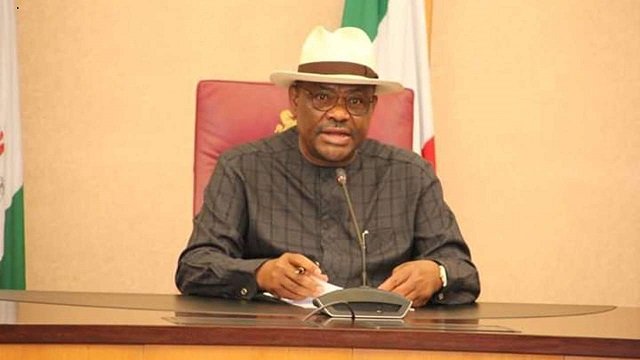
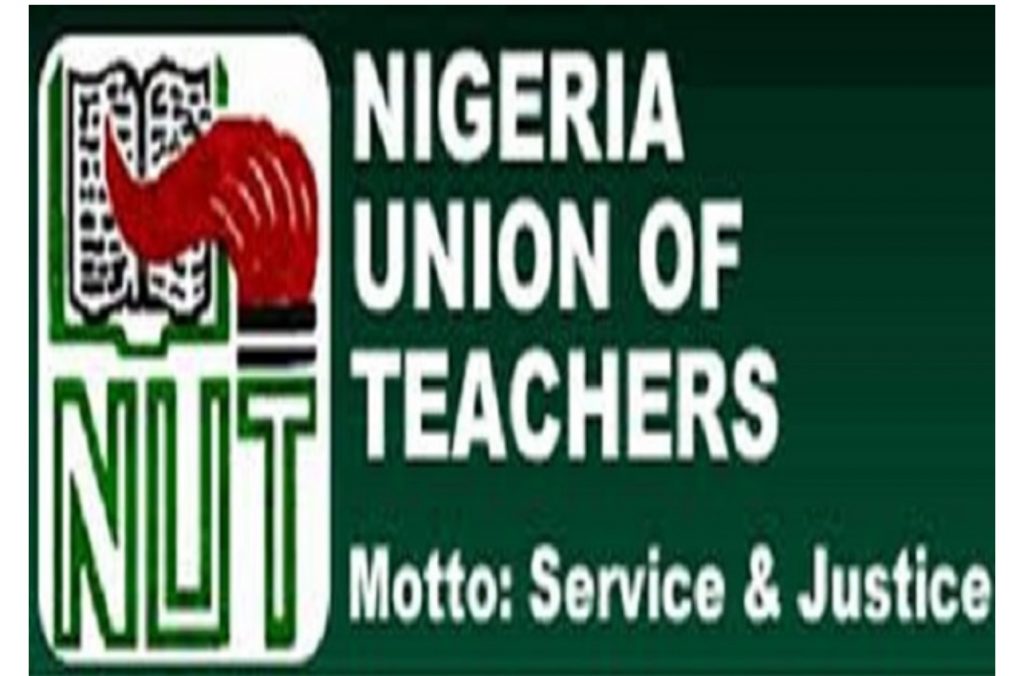 The FCT wing of the Nigeria Union of Teachers has announced the suspension of its over three-month-old strike by primary school teachers, with a directive for members to return to classrooms starting Wednesday, July 9, 2025.
The FCT wing of the Nigeria Union of Teachers has announced the suspension of its over three-month-old strike by primary school teachers, with a directive for members to return to classrooms starting Wednesday, July 9, 2025.
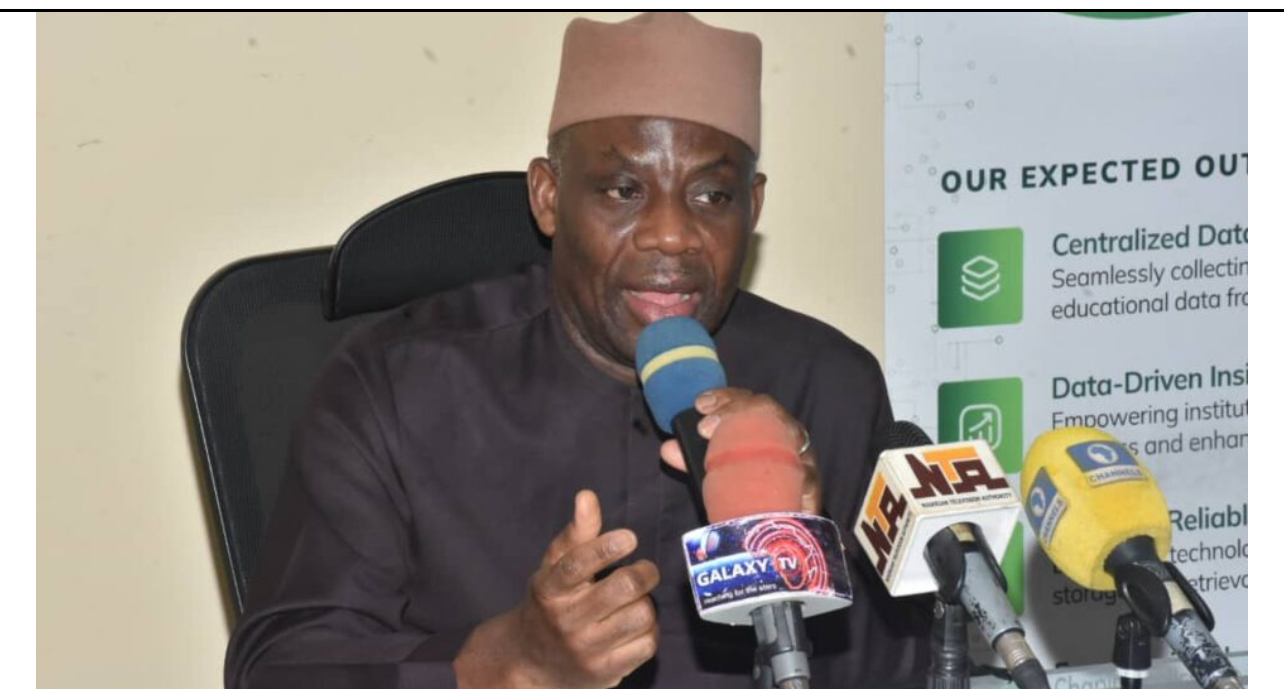
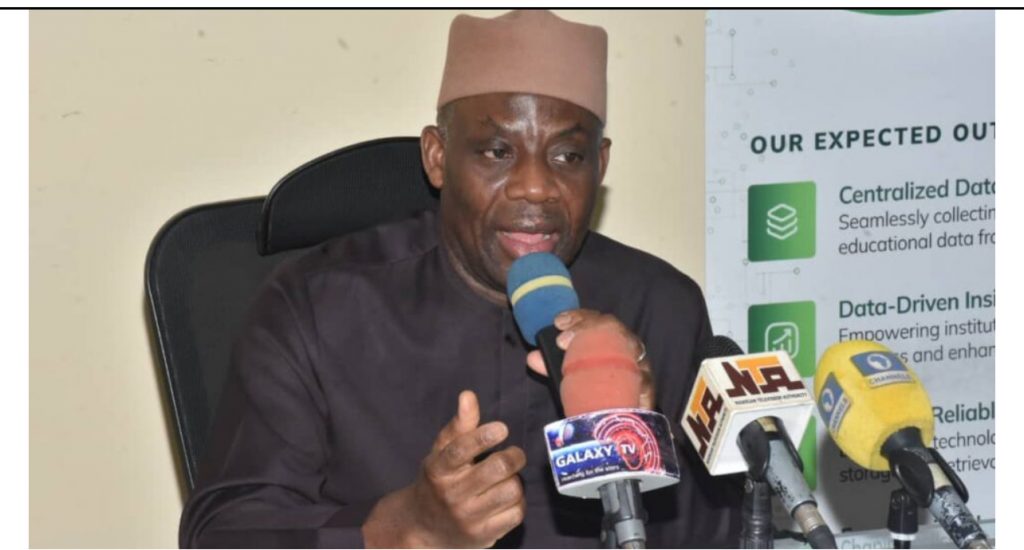
 Vice Chancellors of Universities in the country have adopted 150 as the minimum cut-off mark for 2025/2026 admission.
Vice Chancellors of Universities in the country have adopted 150 as the minimum cut-off mark for 2025/2026 admission.









